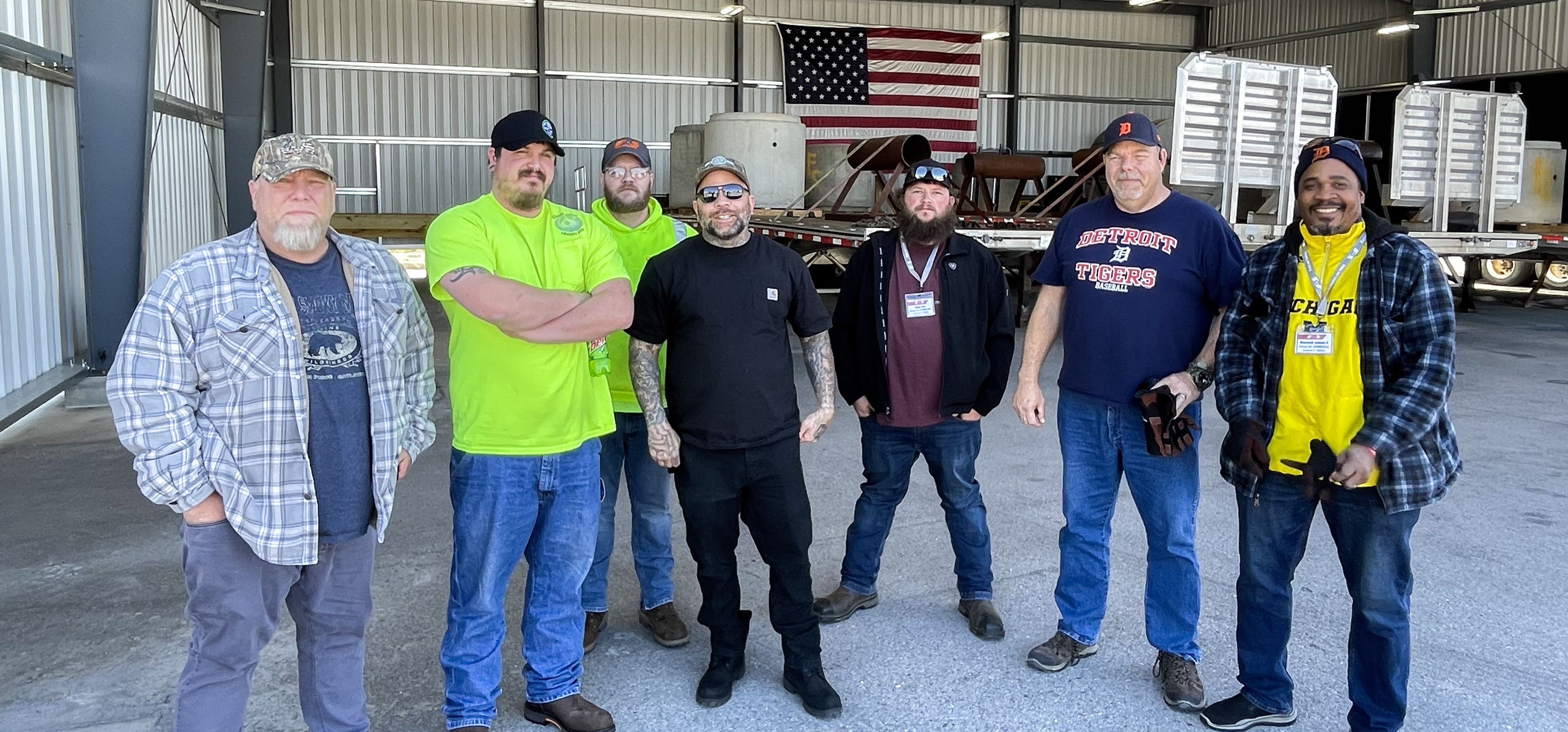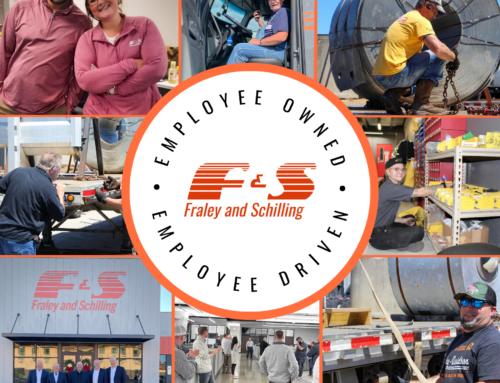A word from Ben Quarles, Lead Hiring Manager at Fraley and Schilling
When talking about “why should I stay with my current employer?”, I have perspective. I have been the Lead Hiring Manager at Fraley and Schilling for four years so I know the importance of finding and hiring good truck drivers. I have seen over and over the initial on-paper skills from applications I process- consistent experience, a safe driving record- all of which are legitimate and quality things to look at but I also meet and shake hands with every driver in person when they come to our orientation. That’s where I get to see the skills harder to catch on paper. Of the many qualities that are required in trucking the highest and most valuable skills I come across are patience and the ability to communicate well. “Driving truck” is difficult. It can be demanding, highly intense, the hours are non-traditional, and the list goes on so it’s no surprise that the job would have high turnover. One of the recurring decisions a truck driver has to make in an industry that breeds rampant turnover is should I stay or should I go? In all jobs, conflict is unavoidable but what makes one company worth sticking with? And what are the benefits to “playing the long game” and sticking it out somewhere? I’m going to explain.
Changing companies frequently can harm a truck driver’s career progression. Most companies prefer to hire experienced drivers who have worked with a single company for a long time. There are multiple reasons but the main thought boils down to this- if they stayed long with them then they will stay long with us. We look for and want those drivers because a driver that stays is more familiar with the company’s policies, procedures, and standards. Translation: there is trust. What happens when you’ve built trust? From there it transitions naturally to promotions, bonuses, and other benefits. Whereas the contrast would be a driver who changes companies frequently. They don’t develop the necessary skills or reputation to advance in their career in an upward fashion naturally. It’s as simple as what you put in, you get out.
Now let’s talk about what’s worth investing in. If a huge key to success is staying, it seems pretty natural that the next question would be “what makes a company worth sticking with?” And here’s what I’ve got- it’s the communication. Communication is something I would argue makes all of the difference in your ability to stick it out. Can you communicate well and can the company communicate well with you? Like I said, conflict is unavoidable in most workplaces just as simple as two different perspectives. There will always be multiple ways to solve a problem, multiple ways to look at a situation, and multiple valuable perspectives but can you advocate and communicate what you need and can the company tell you what they can give? It is true that sometimes certain companies will not be a good fit for certain needs. If you want to be on the road for weeks and weeks but the only position that’s available is home daily then that’s pretty clearly not a good fit for you. But for the most part, the rule of thumb stands that if both parties can communicate well, it’s mutually beneficial to invest time and energy into that.
If none of that meant anything to you, let me hit you with the good stuff. Remember how I said I’m a driver hiring manager? I hear daily what people jump ship for. It’s money. This next statement might hit hard but changing companies frequently is financially unwise for a truck driver. The number one factor that drivers say motivates them to leave is for “better pay”. And I’m frequently baffled that drivers take the bait on leaving a company to go to another company solely to make more money without often getting all of the details. When a driver changes companies, they are walking into a whole different pay scale. It’s common to start at the bottom of the pay scale followed by seeing a substantial pay drop for several weeks. Right around the 90 day mark you’ll get back to earning the average wage. Do the math though, multiple job changes during the year adds up to missing out on thousands of dollars just from moving. Like we mapped out above, there are reasons for switching companies and subsequently taking a pay cut. Maybe you’re leaving an old company that couldn’t give you what you needed and taking a job with a new company. Oftentimes investing in where you want to be long term means having to start at the bottom pay-wise which is good and well and makes sense. Something else to note is that money is attached to other benefits as well, not just hours in the truck. Some examples would be seniority, vacation time and health insurance. These benefits have a monetary value and when you hop from company to company you’re giving away money, even if not directly. Unlike walking into a whole new pay scale and assuming there is a chance you might start at the bottom, you can bet you will start at the bottom when it comes to vacation days, insurance deductibles and seniority. Why? Because what you put in, you get out. Companies do not give new, seemingly untrustworthy drivers the same thought they give to drivers that have invested in their company for years and provide dependable service. So you will not be given the most profitable lanes, best insurance plan and paid days off until you show some skin in the game and prove trustworthy.
Here’s the thing, changing companies frequently will harm a driver’s career progression, and financial profitability. Those are facts. We’ve all had to debate internally why we work a certain job at a certain company especially when job responsibilities change or leadership changes, that’s not unique. What is unique is what perspective you choose to look at those changes from. Take my one bit of advice from my one perspective and consider what it would look like to play the long game and before you act, communicate what you need and have patience to see it work out.





